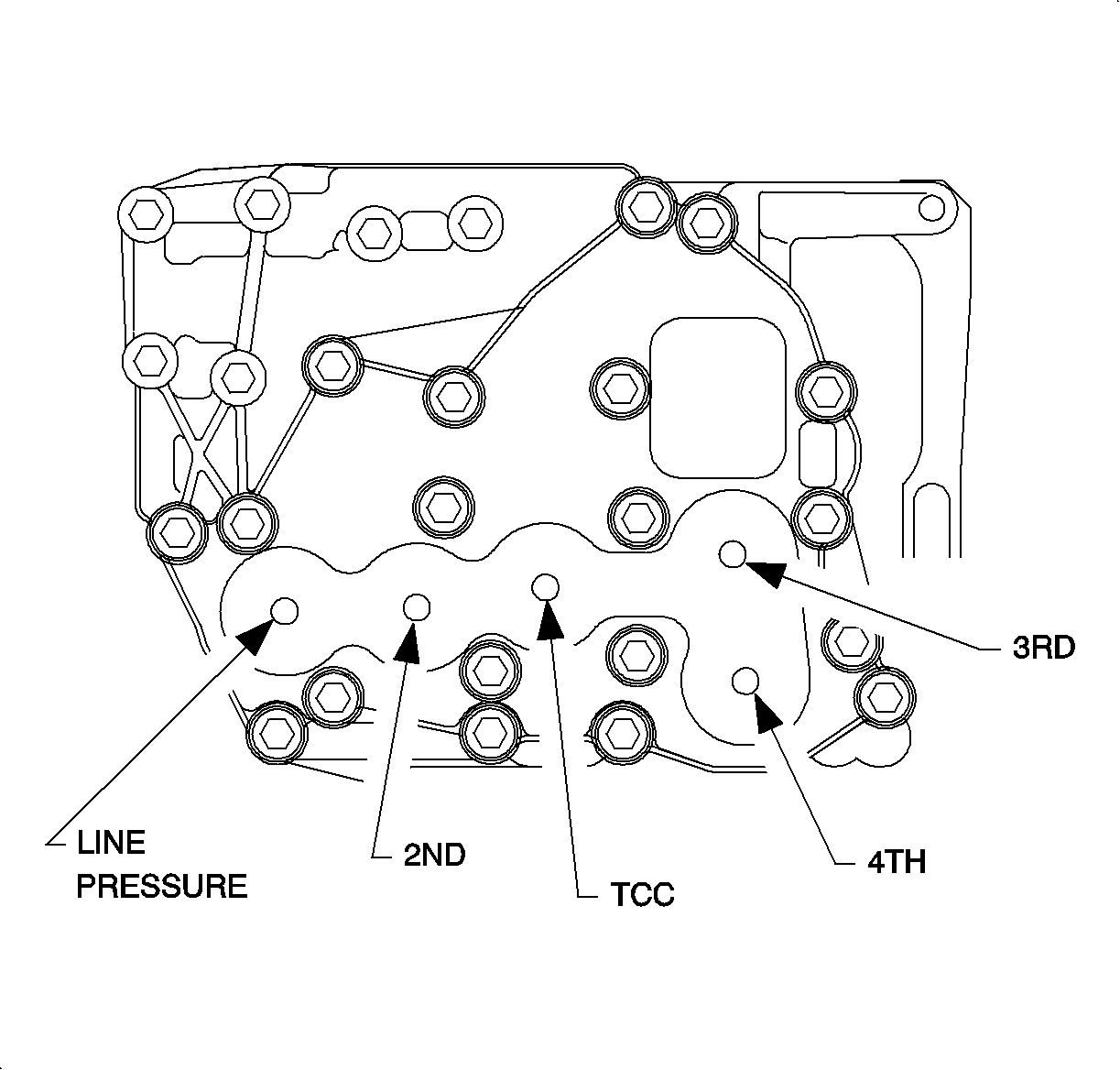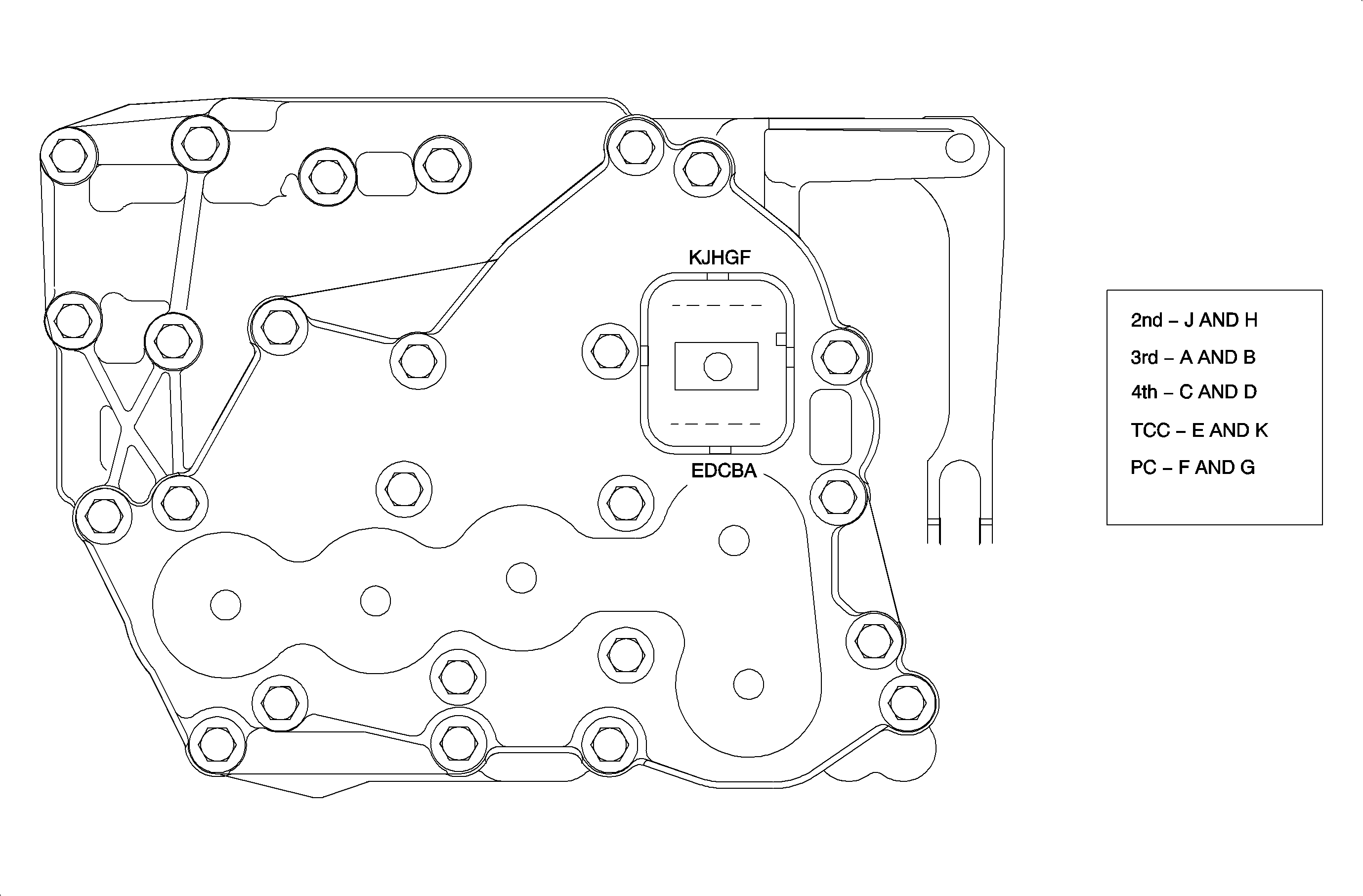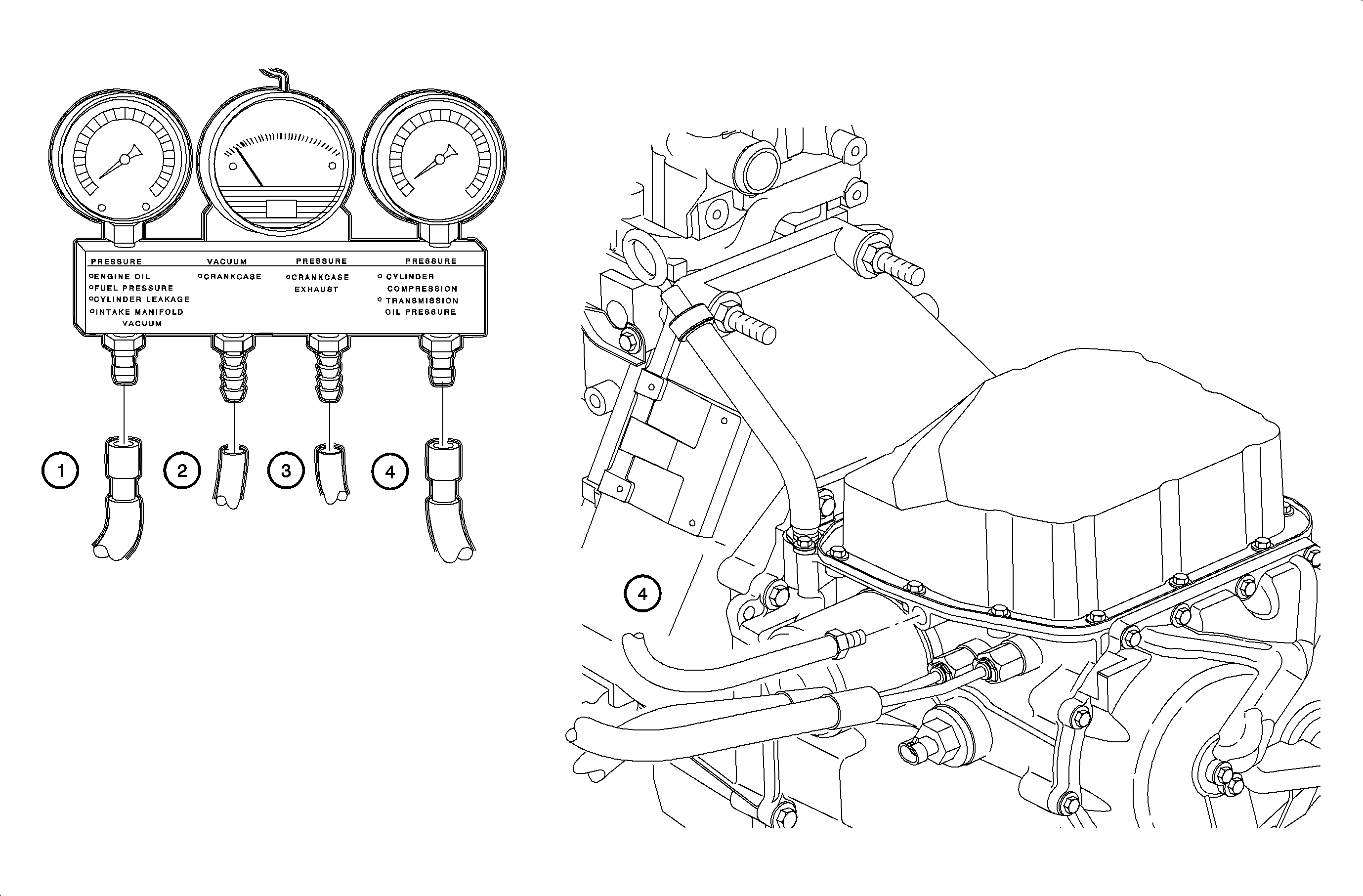Inspection Procedure
- Raise the hood so that the solenoids will be audible.
- Key in RUN, engine OFF, locate the solenoid special test.
This test will allow the PCM to pulse width modulate (PWM) each solenoid at a set duty cycle. Listen and compare the noise of the suspected faulty solenoid(s). If they are functioning properly, they should all sound similar. If the noise coming from the suspected faulty solenoid(s) is faint or not present, replace the solenoid.
Important: Prior to replacing any solenoid, check all connections at the solenoid and connector plate and check for electrical solenoid diagnostic trouble codes (DTCs).
Solenoid Locations - Valvebody

Solenoid Resistance Chart
Temperature | Resistance | |
|---|---|---|
(Degrees F) | (Degrees C) | (Ohms)* |
-40 | -40 | 3.4 |
68 | 20 | 4.5 |
122 | 50 | 5.0 |
176 | 80 | 5.5 |
230 | 110 | 6.0 |
*These values may vary slightly. When a solenoid is suspected to be causing a problem, an accurate way of checking resistance is to compare the suspect solenoid value to the resistance value of the other solenoids. Values should be within 1 ohm of each other at the same temperature. | ||
Transaxle/Solenoid Electrical Connector


